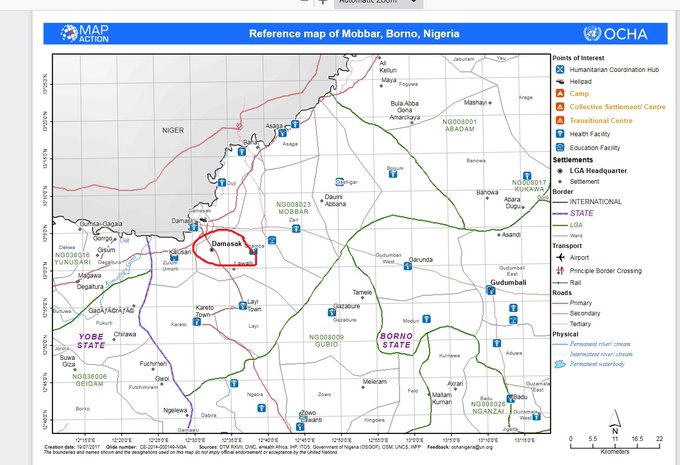Nigeria: Reps Launch Probe Into $4.6bn Health Grants From Global Fund, USAID

The lawmakers said the funds, comprising $1.8 billion from the Global Fund and $2.8 billion from USAID, were intended to combat HIV/AIDS, Tuberculosis, and Malaria, and to strengthen Nigeria’s health systems.
The House of Representatives has launched an investigative hearing into how Nigeria managed over $4.6 billion in health grants received between 2021 and 2025 from the Global Fund and the United States Agency for International Development (USAID).The funds, comprising $1.8 billion from the Global Fund and $2.8 billion from USAID, were intended to combat HIV/AIDS, tuberculosis, and malaria, as well as to strengthen Nigeria’s health systems.
The hearing comes at a critical time as Nigeria faces multiple health system challenges, including overstretched primary care, drug stock-outs, and uneven access to treatment across states.
Despite billions in donor funding, mortality rates from preventable diseases remain high in several regions, highlighting gaps in governance, fund leakages, and delays in programme implementation.
Declaring the hearing open in Abuja on Monday, Chairman of the House Committee on Infectious Diseases, Amobi Ogah, said the probe aims to uncover how the substantial donor funds were utilised and whether they delivered tangible health outcomes for Nigerians.
Mr Ogah recalled that the House, at plenary on 21 October 2025, had resolved to investigate the management of donor resources channelled through Nigeria’s health system.
The then Committee on HIV/AIDS, Tuberculosis and Malaria Control (ATM) was mandated to handle the probe, which the restructured House Committee on Infectious Diseases has now taken over.
He commended Speaker Abbas Tajudeen for renaming and broadening the committee’s mandate to reflect a more comprehensive focus on public health threats.
“Nigeria continues to be battered by the ill effects of a greater burden of HIV, Tuberculosis, Malaria and other numerous infectious diseases.
“It appears that while budgetary allocations and donor funds are mobilised for the response against these health challenges, there is no reprieve in sight as Nigerians are ravaged daily,” Mr Ogah said.
The committee chairman noted that about 90 per cent of Nigeria’s intervention funds for these diseases come from international partners, warning that the country would no longer remain a “mere spectator” in the management of donor resources.
“Any grant or assistance being given to us without us managing such a grant is unacceptable. If they would not give us such grants and assistance on our terms, then let them keep their grants,” he declared. “We must assert our capacity to take charge of our affairs, particularly in the response against HIV/AIDS, Tuberculosis and Malaria.”
He directed the Federal Ministry of Health and Social Welfare, alongside the Country Coordinating Mechanism (CCM), to ensure that all principal recipients and implementing partners submit their implementation plans for National Assembly approval before funds are disbursed.
“The era of spending Nigeria’s money without approval and accountability is over,” Mr Ogah warned.
The lawmaker also disclosed that the House is amending the National Agency for the Control of AIDS (NACA) Establishment Act to expand the agency’s scope.
The proposed amendment seeks to transform NACA into the National Agency for the Control of AIDS, Tuberculosis and Malaria (NACATAM), making it a multi-sectoral institution.
According to him, the investigative hearing will assess transparency, accountability, and efficiency in the use of donor funds since 2021.
“Anyone, whether state or non-state actors, must indeed account for every Nigerian kobo spent for the response against public health threats,” he stressed.
With the 8th replenishment of the Global Fund expected this month, he said Nigeria must shift from dependency to sustainable domestic health financing.
Mr Ogah also revealed that the committee would collaborate with the Economic and Financial Crimes Commission (EFCC) and the Independent Corrupt Practices Commission (ICPC) to track and verify how grants were used by implementing partners.
He urged all implementing partners to prepare for rigorous parliamentary scrutiny, noting that some lack identifiable offices or verifiable operational presence. He said the committee would hold the Ministry of Health and the CCM accountable for ensuring that every organisation handling donor grants operates transparently.
Mr Ogah clarified that the probe was not a witch-hunt but a democratic exercise to strengthen governance and restore public trust.
“This exercise is an essential ingredient of democracy and should not be seen as a vendetta or warfare,” he said. “We are very clear in our vision to ensure that no Nigerian child dies before age five from HIV, Tuberculosis, or Malaria. We want to ensure that the advocacy and commitment that will lead to the elimination of infectious diseases in our country by 2030 are championed and owned by all relevant stakeholders.”
In his remarks, Minister of Health and Social Welfare, Ali Pate, described the investigation as a timely intervention that would promote transparency and accountability in donor fund management.
Mr Pate said Nigeria must begin to take greater responsibility for funding its health priorities, warning that donor support was gradually declining after two decades of heavy external financing.
According to him, while donor assistance has saved millions of lives, Nigeria’s health spending still falls below 15 per cent of the Abuja Declaration target.
By Premium Times.



